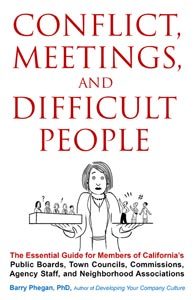 Conflicting cultural norms and expectations can spring up in unexpected places. Spilled movie-popcorn led me to rethink some lifelong assumptions and question my wisdom.
Conflicting cultural norms and expectations can spring up in unexpected places. Spilled movie-popcorn led me to rethink some lifelong assumptions and question my wisdom.
Scene (Part I): Conflict in the Lobby
It’s pre-COVID. I’m at the movie theater with my daughter and grandson. It’s the intermission. My grandson has a carton of buttered popcorn which he tips over, spilling some on the lobby’s red patterned carpet. He acts as if nothing has happened. I reach down and start gathering the spilled popcorn together with my hands, but it’s too much to carry. I say, “Stay here and I’ll get a broom.” My daughter standing nearby says, “Dad, you don’t need to do that. They have people to do that. It’s their job.”
Freeze Scene. Narrator (me) reflects:
Here we are, father and daughter, looking at the same scene but interpreting responsibility in entirely different ways. I see cleaning up is the responsibility of the person who made the mess, that is my grandson and by extension his family and me. My daughter sees that the responsibility for cleaning up lies with the person whose job it is to clean up. I see it as personal. My daughter sees it as institutional.
Scene (Part II): Generational and Cultural Differences
I’m momentarily confused and silenced. Just don’t know what to say. I head off, looking for a broom behind the wall behind the popcorn counter. Surprise! There’s another grandfather there looking for the same thing. I recognize a kindred spirit, but also that maybe what I’m doing is a generational thing.
Freeze Scene. More Reflections:
I was born just before World War II, my daughter in the 70s. I couldn’t imagine not picking up the popcorn, while my daughter, and hence my grandson, can’t imagine picking it up. This got me thinking about norms and expectations, and how I had not done a good job passing on the values I grew up with to my daughter. I wondered how much of it was individual (me and my daughter), and how much was other influences. Time for more of my favorite activities — exploration and analysis!
Norms and expectations are a great place to start. They are some of the infinite range of meanings, values, and realities conveyed to us through culture. While parents are a big part of a young child’s acculturation, a large part of cultural training comes later from the broader society: school, friends, relatives, and particularly the mass media. I’m sensitive to how different cultures convey different realities. Here’s an example.
Downgraded for Non-American Culture?
A New York Times magazine article on September 1, 2019, Where Does Affirmative-Action Leave Asian Americans? Describes Asian-American cultural values as strikingly different than traditional American values. The article contrasts the academic success achieved by Asian applicants to Harvard University, and the downgrading of these applicants by the University and by the students’ high school teachers — for their “personal ratings,” (the meaning of which is never stated).
As Harvard University explained, despite superior academic and extracurricular ratings, Asian American applicants uniformly received worst recommendations from their teachers and guidance counselors. Why? No answer is offered, but I’d guess from an American academic’s eye, there is something missing. There is a cultural gap.
Asian reticence clashes with American self-promotion. Reticence in Asia demonstrates respect. In the US it might be judged as passive-aggressive withholding. Same behavior, different interpretations. Just like the spilled popcorn scene.
Taking Initiative – An All-American Value
Now in his fifth grade, my once-popcorn-dropping grandson, recently led his school to a striking climate-change action, through personal, self-initiated effort. His inspiring act would have been inconceivable to me in my youth. My Australian cultural norms would have prohibited me from doing anything that stood out. That would be unseemly and embarrassing.
We all absorb, reflect, and indeed conform to the cultural norms around us. My grandson is socially conscious and took action. Standing out — or not — was irrelevant. He was raised here in the United States, and reflects — I might say conforms to — American cultural norms and values.
That’s why he walked away from the spilled popcorn, but also why he single-handedly raised his school’s environmental awareness. My cultural training was to do the opposite. I chose to live here, and I’m very happy with that decision, but sometimes I struggle with these cultural differences.
Reflection: I’m Too Responsible
My high school motto was, and still is, “Honor Non Honores” or, “Honor Before Honors”, or “Do the right thing without looking for recognition and rewards.”
That’s unimaginable in the United States, where it sometimes seems that recognition and rewards are the goal. Here, hard-driving parents guide their toddler’s tiny feet onto the starting blocks for the rat race to American (financial) success. Here sports aren’t for playing together and getting exercise, but primarily organized around competition and profits. The judgmental voice in my head thinks about U.S. culture:
You want, “Get out of my way!” You’ll get your training.
You want, “Me, Me, Me, Me.” You’ll get the training.
You want rat-race anxiety? You’ll get the training.
I remind myself that my Australian experience was 70 years ago. Since then, American culture has successfully exported itself across the globe. Australia, and most countries, have replaced much of their local culture with the import. Some is good, some not so good.
More Reflections: Becoming a Dinosaur
Towards life’s end, we see how each generation begins at a different place, with different values, different expectations, a different world. My grandchildren will deal with major environmental changes of sea-level rise and weather events; the social flux of mass migrations, nationalism, and regional wars; and growing inequities of wealth and resources None of these were visible in my youth, as we emerged from a global “conventional” war.
On reflection, I think my impulse to pick up the popcorn was appropriately questioned, first by my daughter, then by me. Now I wonder how much of my accumulated “wisdom” should also be questioned. Luckily, questioning is one of my favorite activities.
Please give me your ideas or suggestions on this or other blogs. I do appreciate your feedback.
Thank you.
me, Barry Phegan
Add Your Name below to my list to know when I have posted a new blog.




